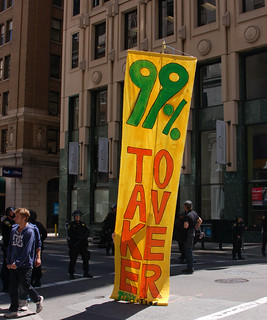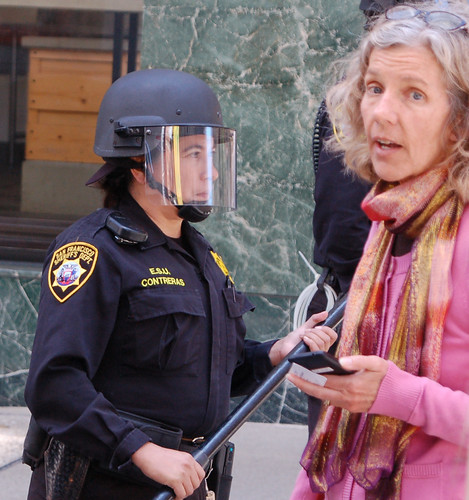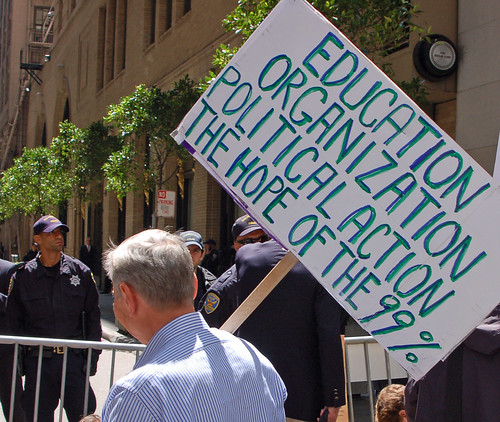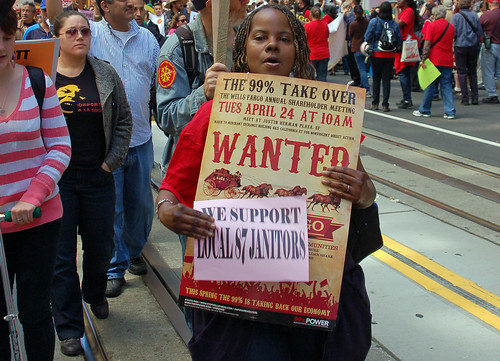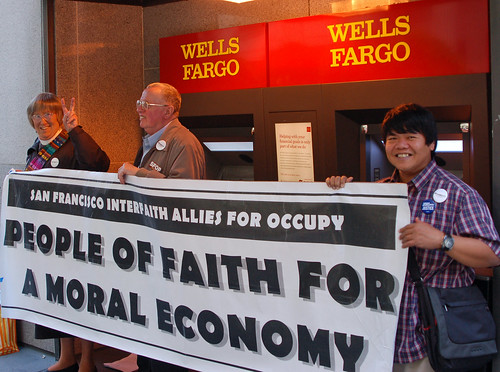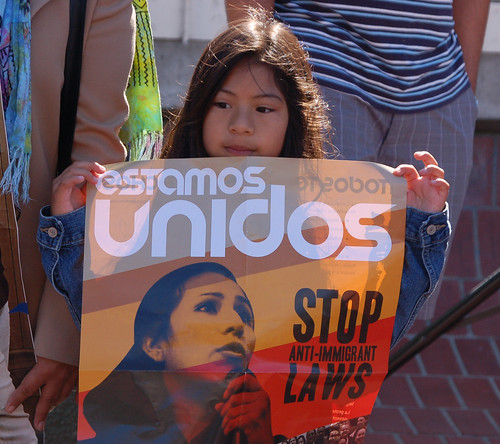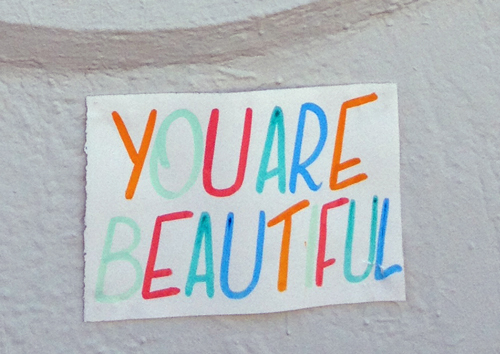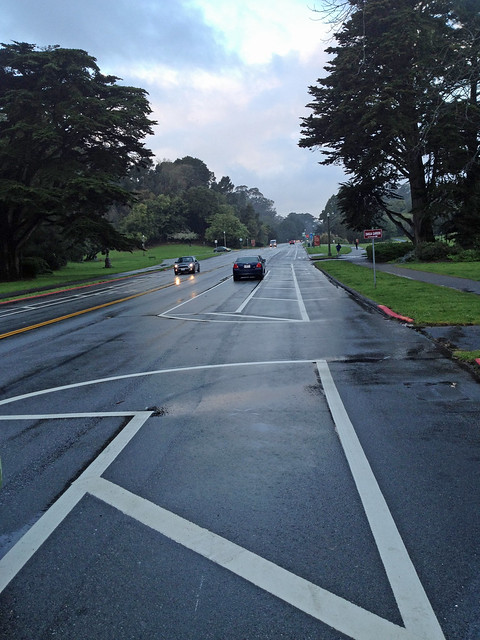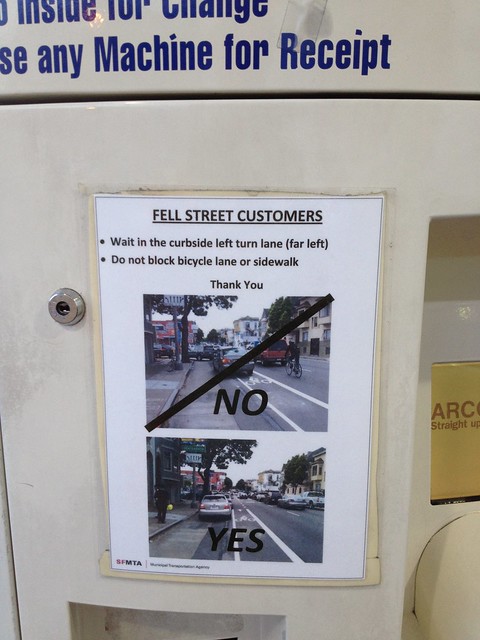
To my surprise, I greatly enjoyed New York Times reporter Jodi Kantor's
The Obamas. This book about the Obama White House and the Obama marriage is my idea of light, enjoyable political reading.
Kantor's male Times colleague
called this "chick nonfiction." Okay, it does have a woman's sensibility; what's wrong with that? People in politics are particular humans as well as celebrity creations sculpted by their pollsters and consultants. There's nothing wrong with trying to record the process of brilliant, tough, determined people trying to live into impossible roles. Kantor is just doing the same sort of human reportage that Walter Shapiro provided in
One Car Caravan -- that tale is a fine male spiel and this is a fine women's yarn.
As a political history,
The Obamas has some major omissions and what I consider errors. It's point of reference simply erases the Democratic Party's left constituencies (except Blacks) -- from this book, you'd never know that masses of people rose up in 2006 and 2008, alienated by President George W. Bush's Iraq war, mishandling of Hurricane Katrina, partisan corruption, and executive overreach. In the Obama-world portrayed by Kantor, Rahm Emmanuel cleverly and single-handedly won Congressional power for the Democrats in 2006 and Obama's campaign was entirely the product of his handlers' brilliance. Thousands of Democratic activists know better.
The only constituency segment that Kantor treats as a real factor in Barack Obama's rise is the Black community. Perhaps this reflects the attitude of the White House intimates? I'm not qualified to judge how accurate an observer Kantor is, but I sense truth in her portrayal of the isolation of African Americans who had achieved such a pinnacle of meritocratic success. No wonder that both Michele and Barack seemed to take awhile to find their selves in that oh-so-White mansion, built by slaves and tended by mostly Black servants.
Yet for all the book's obliviousness to the populist element in the Obamas' story, Kantor provides a telling vignette I've never seen elsewhere. Like many of us who put Obama in office, my greatest disappointment with this president arises from his failure to replace Bush's unconstrained, lawless "security" regime with the constraints of law and due process. She records this story of an Obama meeting with civil liberties lawyers in the spring of 2009:
After four months in office, it was becoming clear to him that the visions with which he had inspired millions upon millions of people during the campaign were going to be very difficult to achieve ….Obama had vowed to end Bush·era detention policies and close the Guantanamo prison, which years after the September 11 attacks still held untried terrorist suspects. Contrary to conservatives who argued that the United States could not worry about legal niceties when dealing with dire threats, Obama had declared, even after being sworn in, that there was no conflict between security and liberty. It was a classic Obama statement, following the same theme as his 2004 convention speech about red and blue America: once again, he was promising to resolve what seemed to be irresolvable.
He wasn't saying that anymore. The one-year deadline he had set for closing Guantanamo was still months away, but it was already clear he would not meet it. He had made that promise before administration officials read the classified files on the detainees, which showed that many of the cases would be much harder to resolve than he had anticipated. Congress certainly wasn't cooperating with the initiative to shut down the facility, even voting to deny funds for alternatives; no one wanted suspected terrorists housed in prisons in their states. Meanwhile, on a host of related matters such as releasing photos depicting detainee abuse, the administration seemed to be echoing Bush policies or adopting them with slight revisions. Obama shared little of the left's interest in prosecuting the former officials who had sanctioned policies such as "enhanced interrogation techniques," including methods denounced as torture, because it could criminalize those vital to counterterrorism efforts. …
He shared their constitutional concerns, he said, but Bush had left him a mess. Releasing the wrong detainee could result in new terrorist attacks, he said, and none of his options were comfortable ones. He urged his visitors not to overlook distinctions between Bush's policies and his own-for example, his ban on harsh interrogation techniques and the modifications he made to the military tribunal system set up by the former president.
… His face emotionless, he told his guests that he was considering an indefinite detention policy, allowing authorities to hold certain suspects without charges. It was an "oh my god moment," one guest said later. The legal rule was so basic, everyone knew it: suspects were innocent until proven guilty, entitled to speedy and fair trials. For a Republican president to violate the rule in the wake of a national catastrophe was galling to the guests. But for a Democratic president, a former constitutional law professor who had campaigned on protecting civil liberties, to make it official policy was shocking.
Before the gathering, the visitors had decided not to confront the president, for fear that leveling accusations at him would backfire. But Anthony Romero, the director of the American Civil Liberties Union, was deeply upset by what he heard.
"Mr. President," he began, eyes fixed on Obama, "I am a gay Puerto Rican American from the Bronx. In my entire life, you are the only politician in whom I have placed genuine faith. If you proceed the way you're indicating, I fear you will sacrifice your legacy and disappoint a generation." It was a well-crafted shot, aimed directly at Obama's belief that he was not like other politicians, at the fact that he had been elected because of the faith he inspired in others.
The president reacted viscerally, the attendees recalled. His jaw clenched, and so did the rest of his body. "Tony," he said, even though Romero went by Anthony, and launched into a reply about how he was doing the best he could, adding that ACLU statements comparing his administration to Bush's simply were not helpful. It wasn't the only time Obama snapped back defensively when confronted with supporters' disappointment. … The encounter ran far over its allotted one-hour time period, unusual for the Obama WhiteHouse. The president asked if anyone else had an urgent point to make before the gathering broke up. Romero urged Obama one last time to prosecute a Bush official. "Hunt one head and hunt it famously and bring it down to ensure we don't make the same mistakes again," he said.
"That's one man's perspective," Obama said dismissively, and the meeting was over.
When push came to shove, reinstating basic civil liberties was a project that Barack Obama couldn't rise to. In another passage, I think echoing how the White House approaches governing, Kantor writes that after Major Nidal Hassan's killing spree at Fort Hood (13 dead; 29 injured)
… the nightmare of regular domestic terrorism attacks seemed more and more likely, which sent tremors through the entire West Wing not just its political precincts: there was no higher presidential priority than keeping the United States safe.
My emphasis. So long as presidents let themselves be held in thrall by the occasional eruptions of mad men, this country hasn't got a chance of turning its attention to our vital problems. A mature country would catch terrorists and jail them, of course, but it would carry on. We need a mature President who can lead us in a grown-up direction. So far, we don't have one.
Kantor's book vividly describes an inexperienced executive and his uncomfortable spouse growing into their roles. He
was unformed and she
was uncertain when they moved into the White House. But by now they seem to have figured it out.
Kantor describes Michele as demanding a more disciplined, more strategic and more political approach to the Presidency than her policy-obsessed and oddly apolitical husband instinctively adopted. He sought expert management of a country in economic crisis and partisan division; smart people should be able to work out their differences. Michele, like many of the President's supporters, wanted him to find a better mix of policy and politics, perhaps even show a recognition that smart politics too was part of his project. She wanted him to find a way to transform the country in a more just direction, not just manage a cumbersome ship of state. Or so this author repeatedly asserts.
Kantor closes with an almost wistful anecdote from the dismal end of the failing 2010 midterm campaign. Michele was making a political pitch:
My husband could not do it alone, she declared, speaking for herself and for them. Like her, the audience had no choice. "Yes, we must," she said, instead of the familiar "yes, we can." "Get to work!" she called into the autumnal darkness by way of good-bye. ..
… In other words, would Obama finally start acting -- in the most necessary and overdue way -- like a politician?
As he fights for re-election, the President is acting like a politician these days, calling out the other guys for coddling the wealthy while making war on women. That's a President who sounds again like the guy who gave us hope in 2008. It is imperative to re-elect him, for all his failings -- the other guy is a conservative plutocrat who has lent himself to the right's project of erasing the 20th century.
But who will Barack Obama be if he wins a second term? Has he learned to mesh the best impulses of both Obamas with their impossible situation?
The Obamas offers some insights, a very mixed bag. This book is far more than a puff piece and a terrific read.







